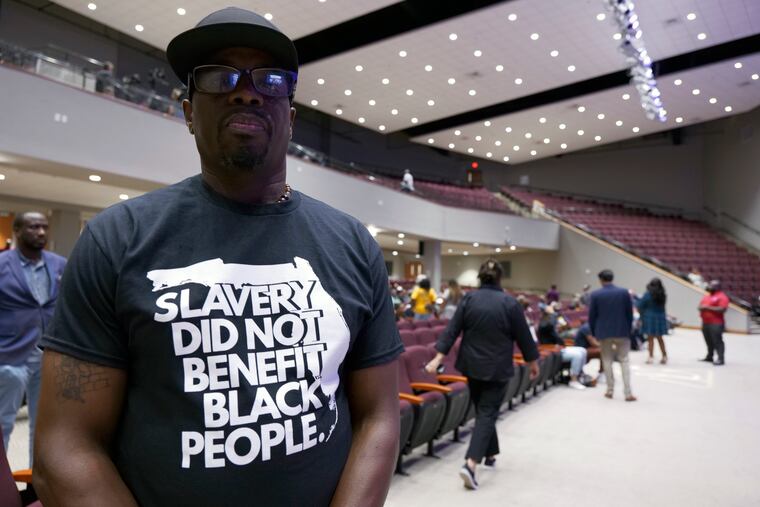Memo to the GOP: Black history is American history | Editorial
Understanding America's complicated past is necessary to better bridge today’s racial divides and move toward a more perfect union.

Black History Month was created to honor and celebrate the contributions and sacrifices that African Americans have made to the United States. But Republicans are on a mission to rewrite Black history.
From curriculum changes to book bans to the elimination of Black studies departments, conservative governors, state lawmakers, and school boards have used efforts to teach Black history as a political tool to scare and inflame their base.
Since 2021, at least 44 states have moved to ban or restrict the teaching of critical race theory. More than 130 bills have been introduced in state legislatures across the country that limit what schools can teach about race, history, sexual orientation, and gender identity.
Florida Gov. Ron DeSantis has led the way in the whitewashing of Black history in recent years. In the past year, Florida eliminated Advanced Placement courses in Black history in high schools, rejected textbooks deemed too “woke,” and adopted new history standards that emphasize the “benefits” of slavery.
A group of educators in Texas proposed that second-grade social studies instruction refer to slavery in a more genteel term: “involuntary relocation.” The measure was not adopted, but Georgia passed a law that restricted teaching about race and racism. Virginia Gov. Glenn Youngkin established a hotline that allowed parents to report the teaching of critical race theory in classrooms.
Many Americans never heard of critical race theory until conservatives turned it into a hot-button political issue. The academic theory developed in the 1980s argues that racial bias is inherent in many institutions. While improvements have been made, there is no denying racism still exists in many corners of society, including banking, education, employment, health care, housing, and law enforcement.
For example, the legacies of slavery, segregation, and redlining have led to a disparity in Black and white homeownership and generational wealth. One study found predominantly white school districts receive more funding than districts where the majority of students are Black or brown. Health-care disparities have resulted in shorter life expectancies for Black people.
Despite the GOP’s revisionist efforts, there is no sugarcoating shameful historical events often not taught in schools, such as the massacres in Wilmington, N.C., in 1898 and Tulsa, Okla., in 1921, or the convict leasing that occurred after slavery formally ended.
Understanding Black history is integral to America’s past and present. It is also necessary to better bridge today’s racial divides and move toward a more perfect union.
The good news is the majority of Americans support teaching the history of racism and celebrating the contributions of Black Americans. The implosion of DeSantis’ presidential campaign and the voter backlash at school board members pushing extreme agendas targeting race and gender issues underscores how many Americans do not want to go backward.
Philadelphia has been at the forefront of bending the moral arc of the country toward justice. In 2005, Philadelphia was the first big city to require all students to study Black history. Almost 20 years later, many blue states have embraced teaching Black history while red states seek to prohibit it.
Cherry Hill recently became the first school district in New Jersey to mandate completion of a Black history course to graduate. The district spent more than a year developing the curriculum and training teachers before rolling out the course in September 2021.
In addition to the usual fare offered during Black History Month that celebrates civil rights leaders like the Rev. Dr. Martin Luther King Jr., students learn about Jim Crow laws, early African culture, systemic racism, and activism.
Contrary to the GOP’s ginned-up hysteria, teaching Black history is hardly “woke indoctrination,” an indignant catchall term the GOP turned into a dog whistle. In fact, Black history is embedded in America’s complicated past.
Cherry Hill freshman Gabriella Pizzo, 14, gets it. As she told The Inquirer, “When you don’t know your history, you’re bound to repeat it.”
That’s a lesson many GOP leaders could stand to learn.